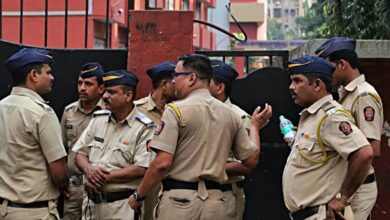Is there a need for stricter laws on drunk driving following the fatal car crashes in Pune and Vadodara?
India has some of the lowest penalties globally for deaths caused by drunk driving.

India’s Liberal Fines for Drunk Driving: A Rising Issue
Drunk driving remains a major issue on Indian roads, resulting in thousands of deaths and injuries annually. In spite of the staggering number of accidents involving drunk drivers, India still maintains some of the world’s lightest punishments for fatalities due to drunk driving. This has fueled an increasing debate regarding whether tougher laws are required to prevent this problem and save lives.
The Effect of Drunk Driving in India
Thousands of individuals lose their lives annually in drunk driver accidents, as reported by the Ministry of Road Transport and Highways (MoRTH). The recent unfortunate car accidents in Pune and Vadodara, claiming the lives of many, have once again put the issue at the center stage. These alcohol-fueled driver accidents are a glaring reminder of the risks of drunken driving.
In India, the law for drunk driving can be stricter based on the nature of the offense. Fines and suspensions of the driving license are imposed on the offenders who have been caught drunk driving, but the laws seem to be not strict enough for cases where lives have been lost. In most instances, the punishment does not appear to act as a sufficient deterrent against the crime.

The Need for Stricter Laws
Among the major issues raised by experts and NGOs is that the penalties set for the offense are not severe enough for the gravity of the crime. Most nations have more severe repercussions for drunken driving that results in fatalities, with sentences that can last several years and heavy fines imposed upon the offenders. For instance, in certain Western nations, intoxicated motorists who cause fatal accidents may be sentenced to life imprisonment or lengthy prison sentences, in addition to hefty monetary fines. Indian legislations, however, are generally said to be too lenient and might not act as a deterrent for repeat offenders.
Not providing severe punishment in India conveys a risk-prone message that the penalty for taking lives on the roads is not heavy enough. This may help to create a culture of carelessness, with drivers feeling licensed to drive while intoxicated without fear of serious repercussions. Since drunk driving accounts for a large proportion of road fatalities, tougher laws might actually lead to fewer of these accidents and safer roads for all.
The Role of Enforcement
Stricter legislation may not be sufficient alone to address the problem. Effective enforcement of laws is an essential need. The police everywhere have to become more active in stopping and checking people for drunk driving, especially where drunk driving is more common. Public awareness programs are also a must to teach drivers the hazards of drunk driving and the strict punishments they may receive.
Furthermore, the justice system needs to be able to process drunk driving cases more effectively. Such lengthy delays in hearing cases and relatively lenient sentences for the guilty further weaken the effectiveness of the judicial system. There should be faster, more decisive action in such cases to make sure that those guilty of causing fatal accidents are brought to justice.
International Comparisons
India does not stand in isolation when it comes to being challenged by drunk driving, yet its punishment is one of the mildest in comparison to the rest of the world. The laws of countries such as the United States of America, Canada, and the European Union are far more restrictive, with stern punishments for guilty parties involved in causing death. These countries have witnessed a huge drop in the cases of drunk driving because they have stringent laws and proactive enforcement. Implementing the same methods in India could bring about a corresponding drop in accidents and save numerous lives.
Conclusion
The recent auto accidents in Pune and Vadodara are heartbreaking reminders of the need for stringent measures against drunk driving. India’s existing fines for drunk driving that result in fatalities are some of the lightest in the world, and experts say the leniency is one reason why Indian roads have so many deaths. It is time that policymakers take seriously stricter legislation, more efficient enforcement, and more effective public education to address this increasing problem. Through adopting a more strict attitude towards drunken driving, India can save lives, avoid unnecessary misery, and build safer roads for generations to come.






